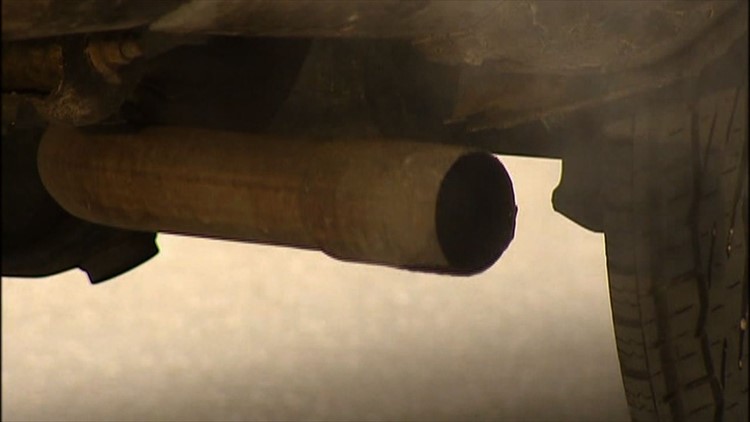NORTH HAVEN — There’s no need to idle your car for any longer than 30 seconds according to both the U.S. Department of Energy and the U.S. Environmental Protection Agency.
The claim is that idling past 30 seconds is an old habit based on old information.
Many of us have long been told that drivers need to warm up their cars before driving in cold conditions.
But federal recommendations show that notion is wrong.
Many drivers start their engines in advance of driving and let their cars idle for five, ten or fifteen minutes. Other drivers let it sit even longer – perhaps while they drink their coffee and shower before work.
But the Dept. of Energy says warming up your car by idling longer than 30 seconds before you start driving has no benefit.
They write:
-
Avoid idling. Think about it — idling gets you 0 miles per gallon. The best way to warm up a vehicle is to drive it. No more than 30 seconds of idling on winter days is needed. Anything more simply wastes fuel and increases emissions.
The theory is that newer cars simply don’t need to idle because they have newer technology.
Older cars had carburetors, which needed time to get the right mix of air and fuel in the engine by warming up.
But since 1990, all cars have electronic fuel injection systems with sensors that adjust to the temperature conditions automatically.
Nancy Alderman, President of Connecticut non-profit “Environment and Human Health, Inc.” warns against excessive idling for several reasons.
“It’s not good for the environment, as we said; it’s loaded with carbon dioxide. It’s not a good thing to do,” said Alderman.
Alderman said exhaust fumes are linked to increased rates of cancer, heart and lung disease, asthma and allergies.
Beyond health concerns, she cites environmental damage from carbon dioxide, wasted fuel, and evidence that idling can actually degrade an engine’s performance over time.
With the cold temperatures of late, it’s definitely more comfortable for drivers to start the car a little bit early to generate some warmth in the cabin.
But Fox CT talked to a mechanic to find out whether skipping the idling truly acceptable for your engine.
“What they’re (the EPA) not taking into consideration is all the other units that the engine has to power up,” said Mark Lydell of Lydell Motors in North Haven.
Lydell, a mechanic and owner of his garage since 1983, said he disagrees with the EPA’s “30-second rule”.
“I think the best thing is to let the engine warm up for longer than a minute for certain but you know you don’t have to wait half an hour either, you know I think a reasonable time is a couple of minutes,” said Lydell.
He said the 30-second recommendation doesn’t account for the transmission and drive train’s temperature.
“It’s really hard to put a blanketed kind of statement like that – you know because obviously if its 20 below zero, it’s not going to behave the same way as at 32,” said Lydell.
He suggests giving the car an extra minute to warm up for every ten degrees the temperature is below freezing (32 degrees F).
“I don’t care if you’ve got a brand new battery or not, if it’s 20 below zero, it’s going to crank really slowly, everything is struggling to move and that’s all the oil, all the metals, everything in there is fighting against it,” said Lydell.
Alderman is pleased by the EPA’s recommendation because it could lead to less idling and in turn, fewer negative consequences of idling.
“Some people will still want to warm up the inside of their car, but I think people should at least know they don’t have to idle on a cold day before they get into their cars,” said Alderman.
She’s particularly concerned about drivers who turn on their engines while passengers are loading groceries into the rear of the vehicle.
“A wife, or a child will load the back of the car with the exhaust coming out directly at them as they load the car- this is just not a good idea,” said Alderman.
However, many seem to scoff at the idea of breaking such a longstanding belief in the need to warm up their car for several minutes.
“Are people going to stop it? Uh, not everybody is… but at least if they know, what the health effects are, and they know what the environmental effects are, at least some people will think about it,” said Alderman.



